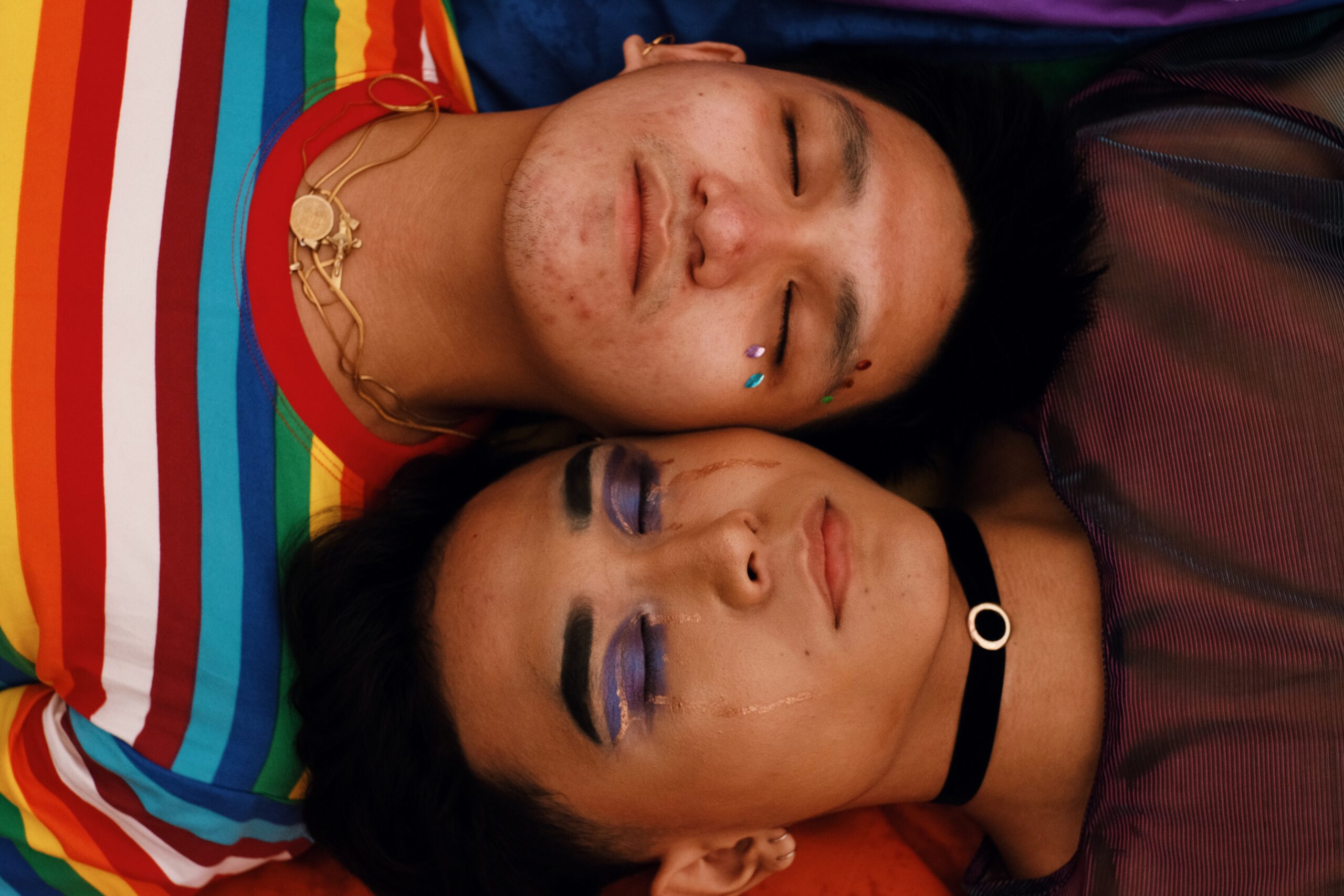LGBTQ+ AAPI - Pride and Prejudice
Are you an Asian American or Pacific Islander (AAPI)? Are you part of both the LGBTQ+ AAPI community?
Mind Connections supports the AAPI community. During Pride Month, we want to bring light to certain challenges LGBTQ+ AAPI people face. If you are interested in learning more, keep reading!
TW: mentions of life-ending acts in this article
Asian Americans – The Model Minority
POC LGBTQ+ people are affected by the hatred aimed at multiple marginalized groups. AAPI people have unfair stigmas pushed on them. The AAPI community is called the “model minority.” This stereotype is very harmful to the AAPI community. Unfortunately, it is often viewed as a complement to unaware pushers of this idea.
The model minority label upholds the idea that AAPI people are extremely hardworking and easily succeed in school and work. While this seems like a good thing, this theory actually stems from racism against AAPI people in America. This label makes it seem like AAPI worked hard and defeated the racism they once faced. This not only makes it seem like the mistreatment of AAPI people does not exist anymore but also pits other minority groups against them.
Coming Out to AAPI Parents

According to the Human Rights Campaign (HRC), many Asian Americans feel pressure about coming out to their parents. Fear of disappointing their parents is one of these reasons. The HRC says that 6 in 10 AAPI are immigrants to this country. Immigrant children know what their parents went through to create a better life for them. Due to this gratitude and awareness, they fear bringing disappointment to their family.
In the article, “Being Asian-American and LGBTQ+: a Teen Perspective,” the writer discusses what it is like coming out to Asian American parents. The author talks about the difference between the media from each generation. The current generation has more exposure to positive LGBTQ+ media and representation. The media Asian parents grew up with is nothing like the media youth experience now. The author talks about how being LGBTQ+ seems like a more westernized and detached idea, as a result.
Furthermore, the writer shares that coming out is scary because topics of sexuality, sex, and mental health are not usually talked about openly. They acknowledge that it may be difficult for some time, but things will get better!
Hate-Crimes against AAPI

Racism towards AAPI is very common today. Notably, the pandemic has brought so much more discrimination to AAPI communities. Besides the ongoing racial stereotypes, physical attacks such as assault, being coughed on, being spat on, etc., increased due to COVID-19.
Hate crimes have negative effects on the victims’ mental health. Victims can face psychological distress, anxiety, depression, and PTSD. If you want to learn more about emotional distress caused by hate crimes read our article here.
Mental Health Challenges for LGBTQ+ AAPI
According to the “AAPI LGBT ADULTS IN THE US: LGBT Well-Being at the Intersection of Race” document, 21% of LGBTQ+ AAPI adults are diagnosed with depression – this is much higher than non-LGBTQ+ AAPI (7%). AAPI LGBT adults are also more likely to take part in high-risk health behaviors, face serious health concerns, lack health insurance, and feel unsafe.
Alongside AAPI discrimination, people can also experience stressors from being part of the LGBTQ+ community. According to the Trevor Project in 2020, API Transgender and Non-binary youth were three times more likely to attempt suicide than cisgender API. Also, 71% of transgender AAPI said they faced daily harassment.
When AAPI people try to better their mental health, they could face some issues. Things like language barriers or lack of culturally aware providers can get in the way of treatment.
Like mentioned before, discussions about mental health in AAPI families are challenging. Someone may be struggling with mental health issues, but they may not feel comfortable sharing these concerns in their home. This could prevent people from getting the help they may desperately need.
Importance of Social Support for LGBTQ+ AAPI

Social support is very important to all people in the LGBTQ+ community. People with lower social support were more likely to experience higher rates of suicide attempts. According to the Trevor Project in 2020, most LGBTQ+ AAPI were well received by their friends. This support helped cut suicide rates by more than half.
This support can be important also for AAPI who struggle with their families accepting who they are. Friends who can support and uplift LGBTQ+ AAPI will positively affect their loved one’s mental health.
Resources for LGBTQ+ AAPI
Parents and Family
As mentioned before, if your parents are finding too hard to cope with your coming out process, think about resources like PFLAG and NQAPIA. Each organization spreads awareness and knowledge about the LGBTQ+ community and helping people, like parents, become better allies.
Remember, it may have taken you a while to accept who you are fully. The same way you needed time, your parents and family may need the same. In. time, hopefully they will come!
Social Support
As discussed in this article, social support is very important to helping AAPI LGBTQ+ people. Lean on friends and loved ones when you are going through a hard time or need support. Your loved ones are there to help you deal with whatever problems you face. Remember to do the same for your LGBTQ+ or AAPI friends. Check in with them, comfort them, and show them love and support.
If you feel like you do not have a support system to go to, there is always hope! Try joining your local LGBTQ+ organization or school’s GSA. These groups can help you make a difference in your community while meeting new queer people to relate to and bond with.
The AAPA has also listed more resources for LGBTQ+ AAPI people here.
LGBTQ+ Pride Counseling and Therapists
Your mental health and well-being are important! You deserve to have a therapist that can provide you with effective help! Mind Connections supports Chinese/ Asian Americans & Pacific Islanders (AAPI).
Our team is made up of Asian American therapists who speak Chinese, Korean, and English to meet your language needs. Our team is well trained in helping the AAPI communities. We also provide affirming therapy to LGBTQ+ clients. We want to support you and help you love who you are!
Content Creator, Victoria Gallo; Reviewed by Dr. June Cao
Special thanks to the contribution of our marketing manager Victoria Gallo


